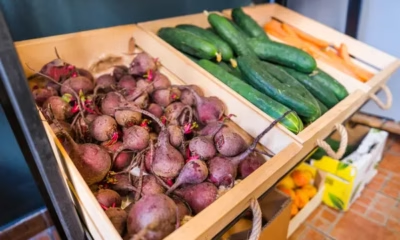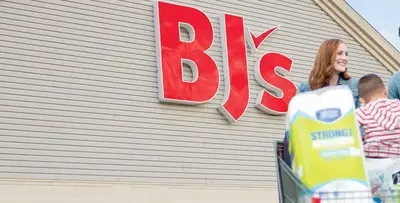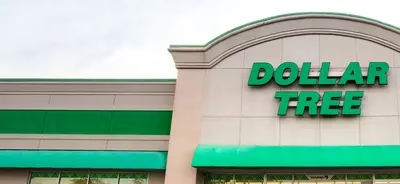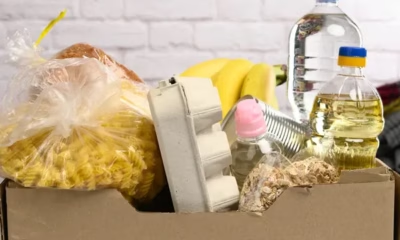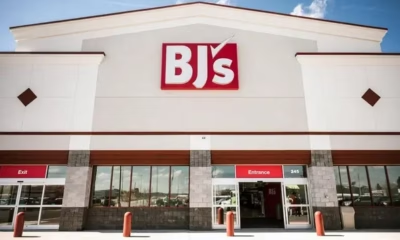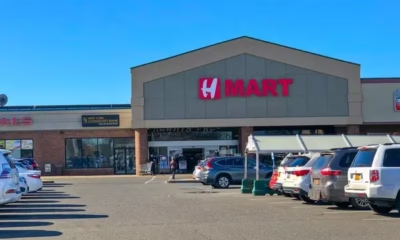Private Label
Local Private Label Opportunities
The ongoing growth of store brands is creating new opportunities for U.S.-based manufacturers. Earlier this year, American Giant introduced American-made T-shirts in 1,700 Walmart locations.

Private label products are experiencing significant growth, and as retailers broaden their assortments, their biggest challenge remains finding reliable suppliers that can deliver high-quality products made locally.
Although the pandemic’s impact has diminished, it highlighted the vulnerabilities of the global supply chain, prompting many retailers to reassess their sourcing strategies. For decades, partnering with overseas vendors was a straightforward choice focused primarily on price.
Today, the conversation has expanded. While price still matters, factors such as quality assurance, availability, and speed to market are now frequently discussed. This shift has opened up Local Private Label Opportunities for U.S.-based companies that continue to maintain domestic manufacturing capabilities.
Store Brands spoke with two private label suppliers: Samantha Burd from Lady Burd, a beauty supplier based in New York, and Bayard Winthrop, founder and CEO of American Giant, an apparel supplier in San Francisco. Both provided insights into the current landscape of U.S. manufacturing.
A U.S.-Made State of Mind
With over 50 years of experience in developing private label cosmetics, skin care, and personal care products, Lady Burd has established a strong foundation in this segment. Founded by Roberta Burd and now led by her granddaughter, Samantha, the company remains focused on private label products while manufacturing from its Farmingdale, Long Island, headquarters.
While many beauty products are still produced overseas, U.S. suppliers like Lady Burd are seeing increasing demand from retailers eager to source domestically. “Before COVID, some retailers wanted American-made products but hesitated to pay a premium,” Burd explains. “Now, there’s noticeably less resistance to that premium, which allows them to highlight the U.S. origin of their products, specifically from New York.”
Despite the historically higher costs of domestically produced items compared to those made in Asia, other considerations such as lead times and ingredient quality are gaining importance in discussions with Lady Burd’s clients. “Questions about ingredients are now a bigger factor,” Burd notes. “More than ever, we’re receiving requests for custom formulations and focusing on regulatory compliance and quality assurance. Our in-house capabilities in these areas are significant selling points.”
Another advantage for Lady Burd is its location. Being just an hour from Manhattan allows clients to visit and consult directly with chemists involved in product formulation. “Having those one-on-one conversations helps clients feel secure, ensuring that the products meet their standards, whether they’re looking for clean, paraben-free, or vegan options,” she adds. This personal touch is harder to achieve with overseas suppliers.
As retailers expand their private brand beauty offerings, many are looking beyond just name-brand equivalents and seeking to provide unique products. Burd emphasizes that her company is benefiting from its agility in product development and rapid market entry, especially given the fast-paced turnover in retail private label assortments.
“Previously, we’d see new products launch every six months, but now very few products last indefinitely in cosmetics or skin care lines. There may be just two or three hero items, with the rest cycling through,” she says. This trend toward short inventory runs is beneficial for Lady Burd, especially with the rise of “new product drops” that create excitement by launching limited quantities at midnight.
Bringing Apparel Manufacturing Back
Winthrop founded American Giant 13 years ago with a clear vision: to manufacture high-quality apparel domestically while also reviving U.S. jobs. “I wanted to challenge the trend of overseas production,” he reflects. “American Giant was born from that simple yet passionate idea.”
This summer, the company made headlines by launching a line of T-shirts in 1,700 Walmart locations. Made from 100% American cotton sourced from the southeastern U.S., these shirts carry a retail price of $12.98 and proudly display “American Made” on the front.
However, increasing domestic apparel production has its challenges, as most clothing sold in the U.S. is manufactured in Asia. Winthrop notes that labor availability is one hurdle since there isn’t a large, well-trained workforce ready to enter the industry. Developing a smooth-running supply chain and securing consistent raw material sources also presents challenges.
Interestingly, finding production facilities has been less difficult than anticipated. “Driving through the Carolinas and other areas, the decline of the textiles industry is evident, with many mills closed,” Winthrop explains.
Courtesy of Samantah Burd
A key factor in American Giant’s success has been its partnership with Walmart, which Winthrop believes could influence other retailers positively. However, convincing major apparel brands like The Gap or Old Navy to pivot away from cheap seasonal items made overseas remains a challenge.
“Walmart is leading with strong values and isn’t overly concerned about stock price reactions,” he states. “I hope brands like The Gap will reconsider selling July 4th shirts made abroad and strive for better practices.”
While Winthrop and American Giant exemplify the Local Private Label Opportunities narrative today, he believes more work is necessary to boost domestic manufacturing as a way to provide quality jobs across the U.S. “Not everyone can be a tech engineer. We need solutions to create dignified work for those with high school diplomas, whether in urban areas like Baltimore or rural regions like South Carolina.”
In summary, as retailers seek to grow their private label offerings, they increasingly turn to local suppliers, recognizing the Local Private Label Opportunities that can enhance product quality and availability while supporting the economy.


